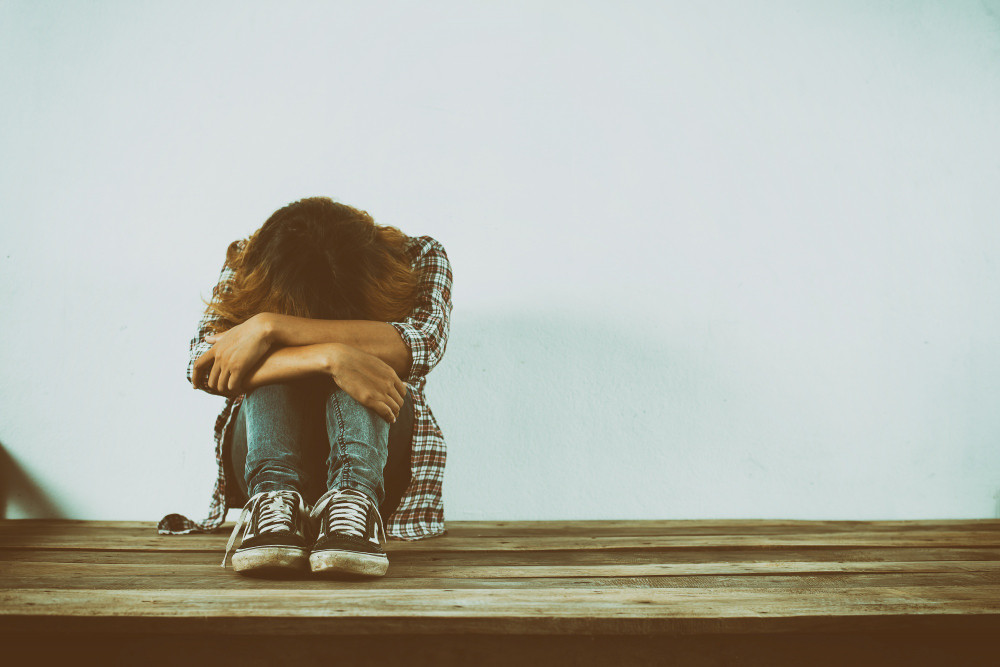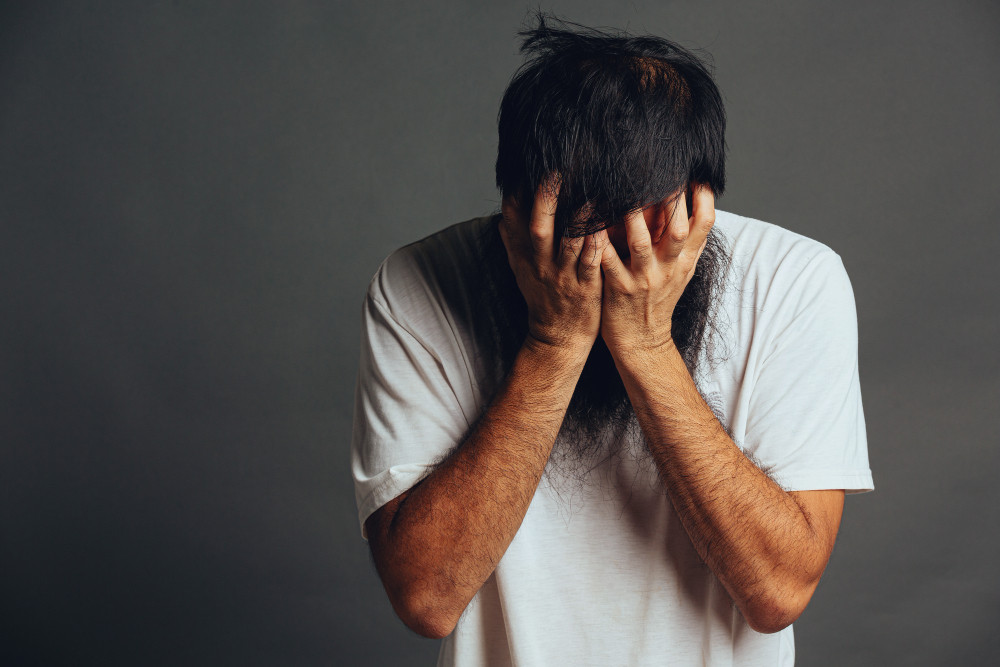Delusi atau waham adalah kondisi dimana seseorang tidak dapat membedakan mana khayalan dan mana kenyataan. Orang yang mengalami delusi meyakini suatu fakta yang keliru dan tidak terbukti kebenarannya. Kondisi ini sering dianggap sama dengan halusinasi namun sebenarnya keduanya memiliki perbedaan mendasar. Simak ulasan berikut untuk memhami perbedaan antara delusi dan halusinasi.
Perbedaan Delusi dan Halusinasi
Delusi dan halusinasi sering kali dianggap sama. Keduanya merupakan distorsi dari realita dan terjadi pada kondisi psikosis dimana seseorang tidak bisa membedakan mana yang nyata dan tidak. Meskipun demikian, delusi dan halusinasi sebenarnya adalah dua kondisi yang berbeda. Perbedaan mendasar antara halusinasi dan delusi adalah delusi merupakan gangguan pola pikir atau kemampuan kognitif sedangkan halusinasi merupakan gangguan masalah sensori.
Delusi
Delusi atau waham adalah kondisi dimana seseorang meyakini sesuatu yang salah. Pengidap delusi mengalami gangguan berpikir sehingga apa yang ia yakini tidak dapat berubah meskipun telah disajikan fakta yang bertentangan dengan apa yang ia yakini. Keyakinan ini tidak berhubungan dengan latar belakang budaya atau agama, juga tidak berhubungan dengan kecerdasan orang yang mempercayainya.
Beberapa jenis delusi di antaranya:
- Erotomania: Keyakinan bahwa ia memiliki hubungan asmara dengan tokoh penting atau terkenal
- Grandiose: Keyakinan bahwa mereka merupakan orang penting yang memiliki pengetahuan, harga diri dan kekuasaan
- Cemburu: Yakin bahwa pasangannya tidak setia meski tidak dapat membuktikan keyakinan tersebut
- Penganiayaan: Meyakini ada seseorang yang berencana menyakiti atau menganiaya mereka
- Somatis: Meyakini bahwa dia mengalami masalah kesehatan
- Campuran: Memiliki dua atau lebih jenis gangguan delusi
Baca Juga: Apa Itu Halusinasi? Kenali Jenis dan Penyebabnya
Halusinasi
Jika delusi adalah gangguan berpikir, maka halusinasi adalah gangguan penerimaan sensori dari panca indra. Beberapa halusinasi merupakan hal yang normal seperti halusinasi yang disebabkan oleh tertidur atau terbangun. Namun pada kondisi serius halusinasi bisa menjadi gejala skizofrenia atau demensia.
Halusinasi adalah persepsi yang salah terhadap objek atau peristiwa yang melibatkan indra Anda seperti penglihatan, suara, penciuman, sentuhan, dan rasa. Misalnya, Anda merasa mendengar suara atau bisikan, merasa ada serangga berjalan di tangan atau mencium aroma yang tidak ada. Halusinasi selalu terasa nyata padahal kondisi tersebut tidak terjadi. Hal ini disebabkan oleh reaksi kimia atau adanya kelainan di otak.
Baca Juga: Mengenal Phantosmia, Ketika Indra Penciuman Mengalami Halusinasi
Penanganan Delusi dan Halusinasi
Penanganan delusi dan halusinasi dapat bervariasi tergantung pada penyebab yang mendasari dan tingkat keparahannya. Secara umum beberapa penanganan yang bisa diberikan untuk mengatasi delusi dan halusinasi antara lain:
- Pemberian obat antipsikosis. Obat antipsikosis membantu mengurangi gejala delusi dan halusinasi. Pengobatan ini bekerja dengan menghalangi efek dopamin di otak sehingga seseorang dapat membedakan mana hal yang nyata dan tidak.
- Psikoterapi. Psikoterapi seperti terapi perilaku kognitif (CBT) membantu seseorang untuk mengenali kembali mana fakta dan khayalan. Terapi ini juga dapat membantu pasien mengendalikan reaksi atau gejala delusi dan halusinasi yang muncul. Misalnya, pasien dapat mempelajari bahwa jika orang lain tidak mendengar suara yang ia dengarkan, kemungkinan besar suara tersebut hanya khayalannya semata.
- Rawat inap. Pada pasien yang mengalami episode psikotik parah hingga berisiko melukai dirinya sendiri dan orang lain, dokter dapat merekomendasikan agar ia menjalani rawat inap hingga kondisinya stabil.
- Rehabilitasi. Orang yang mengalami gejala psikosis seperti delusi dan halusinasi dapat menjalani terapi atau rehabilitasi dimana mereka dapat berbagi dengan prang yang memiliki gangguan serupa.
Sekilas, gangguan delusi dan halusinasi sama-sama ditandai dengan orang yang tidak bisa membedakan mana khayalan dan kenyataan. Namun, penyabab keduanya sebenarnya berbeda. Jika mengetahui ada orang yang mengalami gejala delusi dan halusinasi sebaiknya periksakan ke dokter atau manfaatkan fitur telekonsultasi yang terdapat pada aplikasi Ai Care.
Mau tahu informasi seputar penyakit lainnya? Cek di sini, ya!
- dr. Monica Salim
Gupta, S. (2022). Delusions vs. Hallucinations: What Are the Differences?. Available from: https://www.verywellmind.com/delusions-vs-hallucinations-types-causes-diagnosis-and-treatment-5270271#
Herndon, J. (2021). Understanding the Difference Between Hallucinations and Delusions. Available from: https://www.healthline.com/health/mental-health/hallucinations-vs-delusions
Sachdev, P. (2024). Delusional Disorder: Types, Symptoms, and Treatment. Available from: https://www.webmd.com/schizophrenia/delusional-disorder
Cleveland Clinic. Hallucinations. Available from: https://my.clevelandclinic.org/health/symptoms/23350-hallucinations











